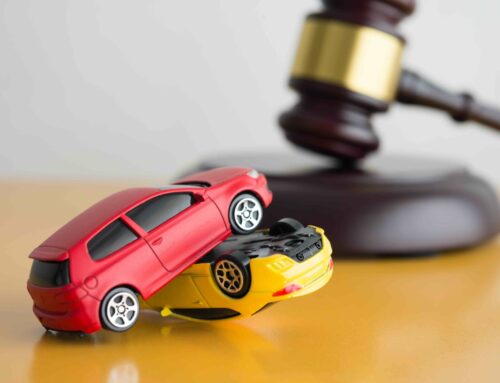March is Women’s History Month, a time to celebrate the incredible contributions women have made across all aspects of society—including behind the wheel. At The Hines & Wilson Law Firm, we want to take this opportunity to address some long-standing myths about women and driving, discuss the unique challenges women face in car accidents, and provide insights on protecting your legal rights after a crash.
The Myth of the ‘Bad Woman Driver’
For decades, there’s been a running joke (or, let’s be honest, an outdated stereotype) that women are bad drivers. But the facts paint a very different picture. Studies consistently show that women are generally safer drivers than men. According to data from the Insurance Institute for Highway Safety (IIHS), men are more likely to be involved in fatal car crashes, drive at excessive speeds, and engage in risky behavior like driving under the influence. Women, on the other hand, tend to be more cautious and have fewer serious accidents.
Yet, despite their safer driving habits, women often face unique risks on the road. These risks aren’t necessarily due to how they drive but rather external factors that disproportionately affect women when they are involved in car accidents.
Women and Car Accidents: The Hidden Risks
While women may have fewer accidents overall, they are more likely to be injured or killed in crashes when they do occur. This is largely due to historical biases in crash testing. For decades, car safety tests were conducted primarily using crash dummies modeled after the average male body. As a result, seatbelts, airbags, and other safety features were designed with men in mind, often failing to account for differences in body structure and size.
Even today, many vehicles still don’t adequately protect women in crashes. Studies have found that women are more likely than men to suffer serious injuries like whiplash, fractures, and head trauma in the same types of crashes. The physiological differences between men and women, including bone density, muscle mass, and even seating position, contribute to this heightened risk. The lack of properly designed safety features for women has been a long-standing issue that automakers and regulators are only now beginning to address.
Another significant risk for women in car accidents comes from disparities in medical treatment and diagnosis. Studies have shown that women are less likely to receive immediate and aggressive medical attention after an accident compared to men. Their injuries, particularly those related to whiplash and concussions, are sometimes dismissed or underestimated, which can lead to long-term health complications.
How to Protect Yourself After an Accident
If you’ve been in an accident, taking the right steps immediately can make a significant difference in protecting your legal rights and securing fair compensation. Here’s what to do:
- Check for Injuries & Seek Medical Attention – Even if you feel fine, adrenaline can mask injuries. Always get checked by a medical professional after an accident. Some injuries, such as internal bleeding or concussions, may not be immediately apparent but can have serious consequences if left untreated.
- Call Law Enforcement – A police report provides an official record of the accident and can be crucial evidence if you need to file a claim. This documentation can help establish fault and protect you from any false claims made by the other driver.
- Gather Evidence – Take photos of the scene, vehicle damage, and any visible injuries. Get the contact information of the witnesses and the other driver. The more evidence you have, the stronger your case will be when dealing with insurance companies or in court.
- Be Cautious with Insurance Companies – Insurance adjusters may try to downplay your injuries or push for a quick settlement. Don’t accept anything before consulting an attorney. Women, in particular, may face bias in how their injuries are assessed, so having legal representation ensures fair treatment.
- Contact an Experienced Personal Injury Lawyer – Having a legal expert in your corner can ensure that your rights are protected and that you receive the compensation you deserve. An attorney can help you navigate the legal process, negotiate with insurance companies, and fight for the full extent of damages you’re entitled to.
Fighting for Safer Roads and Fair Compensation
At The Hines & Wilson Law Firm, we’re committed to helping all accident victims—especially women who may face additional challenges in getting fair treatment. If you or a loved one has been injured in a crash, you don’t have to navigate the legal road alone.
The fight for better road safety and fair treatment for women in car accidents is ongoing. Organizations advocating for improved crash testing standards have made progress, but there’s still work to be done. Supporting initiatives that push for gender-inclusive safety measures in vehicles can help make roads safer for everyone.
Additionally, educating women about their legal rights following an accident is crucial. Understanding the biases that exist in the legal and medical systems can empower women to advocate for themselves and seek the justice they deserve.
This Women’s History Month let’s celebrate women’s contributions to safer roads, advocate for improved vehicle safety, and ensure that every driver receives the protection they deserve. If you need legal assistance following an accident, reach out to us today for a free consultation. Because when it comes to justice, we believe in putting the pedal to the metal!







